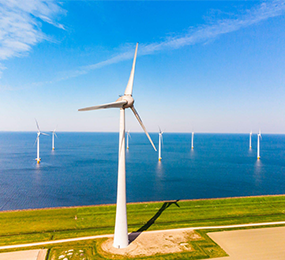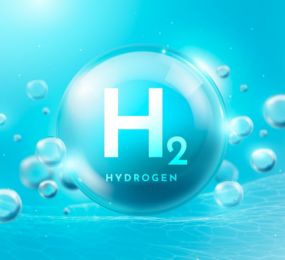The offshore wind industry, while rapidly growing, faces unique challenges in terms of operations and maintenance (O&M). To overcome these hurdles and maximize efficiency, many companies are turning to lean management principles. Derived from manufacturing, lean principles focus on eliminating waste and optimizing processes, resulting in significant improvements in quality, speed, and cost-effectiveness.
Key Lean Principles for Offshore Wind O&M:
- Value Stream Mapping: This technique involves identifying all the steps involved in a process, from start to finish. By visualizing the entire value stream, it becomes easier to identify waste and non-value-adding activities that can be eliminated.
- Just-in-Time (JIT) Inventory: JIT aims to minimize inventory levels by ensuring materials and components arrive just when needed. This reduces storage costs and prevents waste due to obsolescence.
- Kaizen: This philosophy emphasizes continuous improvement through small, incremental changes. By encouraging employees to identify and implement improvements, organizations can foster a culture of innovation and efficiency.
- Single-Piece Flow: This principle seeks to eliminate waste caused by batch processing. By producing items in small quantities and moving them smoothly through the process, organizations can reduce wait times and improve quality.
- Pull System: Instead of pushing work through the process, a pull system relies on demand to trigger production. This helps avoid overproduction and ensures that only necessary items are produced.
Benefits of Lean Management in Offshore Wind O&M:
- Increased Efficiency: Lean principles can significantly reduce waste and improve process flow, leading to increased efficiency and productivity.
- Reduced Costs: By eliminating waste and optimizing processes, organizations can reduce costs associated with materials, labor, and energy consumption.
- Improved Quality: Lean management focuses on delivering high-quality products and services. By identifying and eliminating defects, organizations can improve overall quality and customer satisfaction.
- Enhanced Safety: Lean principles can help identify safety hazards and implement measures to mitigate risks, creating a safer working environment.
- Increased Employee Engagement: Lean initiatives often involve employee participation, fostering a sense of ownership and engagement.
Challenges and Considerations:
Implementing lean management principles in the offshore wind industry can present unique challenges due to the remote nature of operations and the specialized equipment involved. However, by carefully tailoring lean principles to the specific needs of offshore wind O&M, organizations can overcome these obstacles and reap the benefits of improved efficiency and sustainability.
Lean management offers a powerful framework for optimizing offshore wind O&M operations. By eliminating waste, streamlining processes, and fostering a culture of continuous improvement, organizations can enhance efficiency, reduce costs, and ensure the long-term sustainability of their offshore wind projects. As the industry continues to evolve, embracing lean principles will be essential for staying competitive and delivering value to stakeholders.
To register or learn more about the Forum please check here: https://www.leadventgrp.com/events/4th-annual-offshore-wind-operations-and-maintenance-forum/details
For more information and group participation, contact us: [email protected].
















